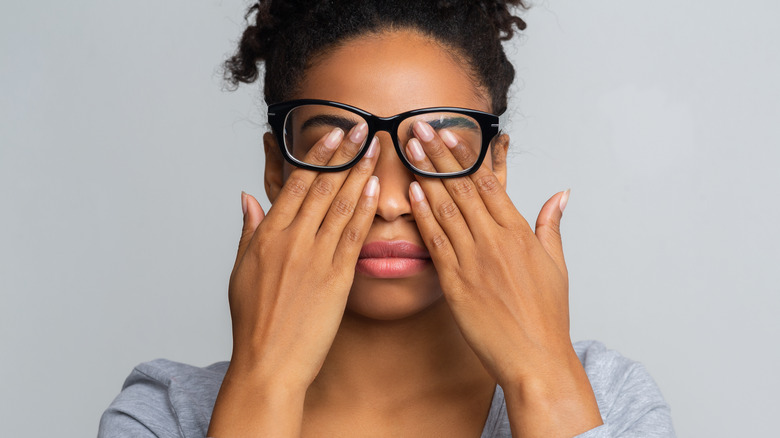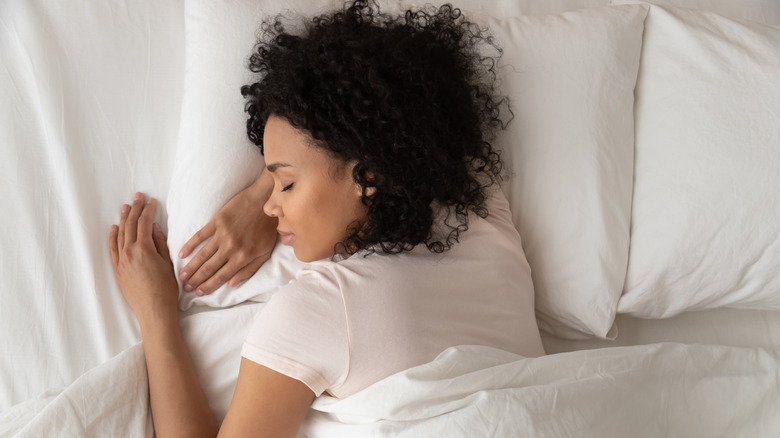Study Reveals How Long It Really Takes To Recover From A Lack Of Sleep
Skimping on sleep is something most people are all too familiar with. As the CDC reports, more than one third of American adults report sleeping less than the recommended amount each night. Adults in the southeast seem the most likely to suffer from lack of sleep, while those in the northwest and central areas of the country get a little more. Even in these areas, however, sleep deprivation is entirely too common.
And while the term "sleep deprivation" might seem overdramatic, it is not. This is particularly true with people who regularly get less sleep than they should. The CDC reports that adults between the ages of 30 and 44 are the most likely to experience a sleep shortage, but all adults are susceptible. And when they lose out on sleep, they open themselves up to big risks. Chronic conditions like obesity, type 2 diabetes, heart disease, and depression have all been linked to sleep deprivation, according to the CDC. Lack of sleep also increases the number of roadway and work accidents each year, leading to injuries and fatalities in the worst of cases.
The prevailing opinion is that, if you miss out on sleep for a few nights, you can always make it up later. But a new study published this month calls that idea into question. In fact, it may lay the groundwork for proving just how long it takes to recover from sleep deprivation.
The study was small but insightful
Published in the peer reviewed journal Plos One, the study followed the sleep habits of 13 adults in their twenties. Participants were only allowed to get 70% of their necessary sleep for ten nights in a row, something not uncommon among people in their age range. These same participants were then allowed unrestricted sleep every night for a week. At each phase — before, during, and after — they were put through several tests to monitor their physical and mental capabilities.
Researchers found that after the week of unrestricted sleep, participants had returned to their baseline for physical activity. Their mental processing and memory, however, were still lagging behind the levels they achieved prior to ten days of restricted sleep. Even a full week of proper rest hadn't fully restored their mental faculties.
The researchers admit that the study is very small, given that their sample size is only 13 people. But it is an insightful study all the same, one that may open the door to understanding just how long it takes for people to recuperate from lost sleep.


